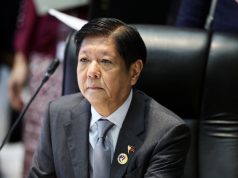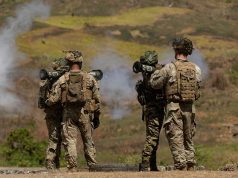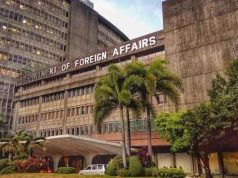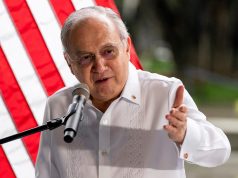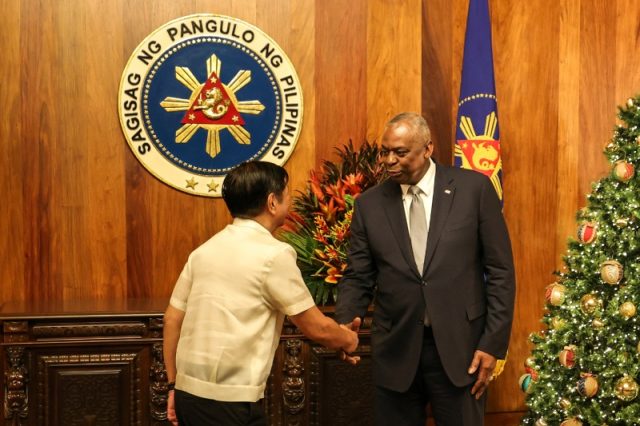
- Pact allows secure sharing of classified military information
- U.S. reiterates ironclad commitment to the Philippines
- U.S. presence in Indo-Pacific essential, Manila’s defmin
- China says military agreements must not undermine regional peace
MANILA — The Philippines and the United States signed a military intelligence-sharing deal on Monday, deepening defense ties between the two nations facing common security challenges in the region.
U.S. Defense Secretary Lloyd Austin signed the agreement with his Philippine counterpart, Gilberto Teodoro, at Manila’s military headquarters where they also broke ground for a coordination center that will facilitate collaboration between their armed forces.
Called the General Security of Military Information Agreement or GSOMIA, the pact allows both countries to share classified military information securely.
“Not only will this allow the Philippines access to higher capabilities and big-ticket items from the United States, it will also open opportunities to pursue similar agreements with like-minded nations,” said Philippines‘ defense ministry spokesperson Arsenio Andolong.
Security engagements between the United States and the Philippines have deepened under President Joe Biden and his Philippine counterpart Ferdinand Marcos Jr, with both leaders keen to counter what they see as China’s aggressive policies in the South China Sea and near Taiwan.
China’s foreign ministry said on Monday any kind of military agreement or security cooperation “must not be directed against or harm the interests of a third party, and they must not undermine regional peace or exacerbate tensions in the region.”
“The only correct choice for safeguarding one’s own national security and maintaining peace and stability in the region is to adhere to good neighborly relations and to strategic autonomy,” Chinese foreign ministry spokesperson Lin Jian said.
The United States and the Philippines have a mutual defense treaty dating back to 1951, which could be invoked if either side came under attack, including in the South China Sea.
“I want to start by underscoring our ironclad commitment to the Philippines,” Austin said during the groundbreaking ceremony for the coordination center.
Austin said the coordination center should enable real-time information sharing between the two defense treaty allies and boost interoperability.
“It will be a place where our forces can work side by side to respond to regional challenges,” Austin said.
The Philippines has expressed confidence the alliance will remain strong under incoming U.S. President-elect Donald Trump.
Both the Philippines and the United States face increasingly aggressive actions from China in the South China Sea, a conduit for more than $3 trillion in annual ship-borne commerce, which it claims almost entirely as its own.
In 2016 the Permanent Court of Arbitration in the Hague said China’s claims had no legal basis, siding with the Philippines which brought the case.
But China rejected the ruling, leading to a series of sea and air confrontations with the Philippines that have turned the highly strategic South China Sea into a potential flashpoint between Washington and Beijing.
“The United States’ presence in the Indo Pacific region is essential for maintaining peace and stability in this region,” Teodoro said during the inauguration, echoing previous remarks made by Marcos.
— Reporting by Karen Lema; Additional reporting by Joe Cash in Beijing; Editing by Martin Petty, Michael Perry and Bernadette Baum




